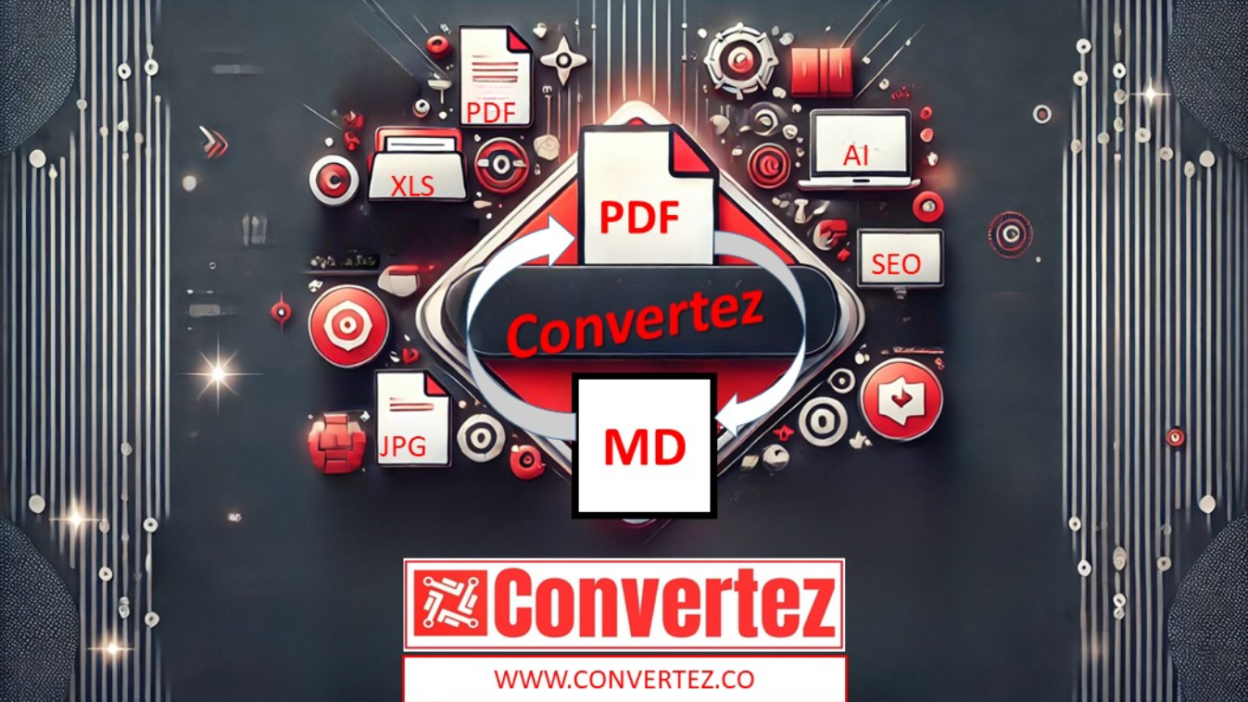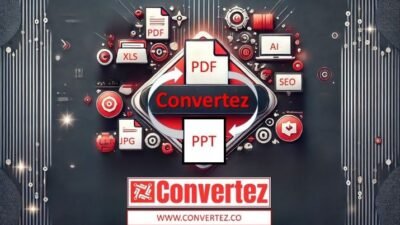In today’s fast-paced digital world, managing and transforming content into the right format is key to productivity and collaboration. One such transformation that’s gaining popularity among developers, writers, and content creators is converting PDF to Markdown. But why would someone want to convert a PDF to Markdown? What are the benefits, and how do you do it efficiently?
In this comprehensive guide, we’ll cover everything you need to know about PDF to Markdown conversion — from the basics to the best tools, use cases, and practical tips.
What is Markdown?
Before diving into the conversion process, let’s first understand Markdown.
Markdown is a lightweight markup language used to format plain text. It was created by John Gruber in 2004, with the goal of allowing people “to write using an easy-to-read and easy-to-write plain text format, and optionally convert it to structurally valid HTML.”
Markdown is widely used on platforms like GitHub, Reddit, Stack Overflow, and even personal blogs. It supports basic formatting features such as:
- Headers
- Bold/Italic text
- Bullet lists
- Code blocks
- Links and images
Its simplicity, portability, and readability make it an ideal choice for content creators and developers.
Why Convert PDF to Markdown?
PDF (Portable Document Format) is great for preserving content and formatting across devices. However, it’s not ideal for editing or version control, especially for technical documentation or content that needs to be regularly updated.
Here are some common reasons for converting PDF to Markdown:
1. Ease of Editing
Markdown is much easier to edit than PDF files. You can open a .md file with any text editor and make quick changes without relying on PDF editors.
2. Better for Version Control
Markdown files integrate seamlessly with Git, making them ideal for teams that manage documentation in repositories like GitHub or GitLab.
3. Clean and Lightweight
Unlike PDFs, Markdown files are lightweight and don’t include unnecessary styling or embedded fonts.
4. Website Publishing
Markdown can be easily converted into HTML or used with static site generators like Jekyll, Hugo, or Gatsby to create clean, responsive websites.
5. Content Portability
Markdown files can be reused across platforms and tools — from blogs to documentation sites to mobile apps.
Common Use Cases
- Developers converting API documentation from PDFs to Markdown for integration into a code repository.
- Writers/bloggers extracting articles from PDFs to reuse in Markdown-based platforms.
- Researchers transforming academic content into a markdown format for publishing or citation.
- Open-source projects needing to convert old user manuals or guides into Markdown for GitHub wikis.
How to Convert PDF to Markdown
Now, let’s explore different ways to convert a PDF to Markdown. You can do it manually (if the file is short) or use tools for automation.
1. Manual Conversion
This method involves copying content from a PDF and formatting it manually using Markdown syntax.
Pros:
- Accurate formatting
- Total control
Cons:
- Time-consuming
- Prone to errors for large documents
2. Online PDF to Markdown Converters
There are many online tools available that make this process super simple. Just upload your PDF, and download the Markdown version.
Popular Online Tools:
- Convertez PDF to Markdown – A fast, free tool to convert your PDFs into clean Markdown with no watermarks or sign-up needed.
- Zamzar
- CloudConvert
- Aspose PDF to Markdown
Pros:
- Quick and easy
- No software installation
Cons:
- May have file size limits
- May not retain complex formatting (like tables or embedded images)
3. Command-Line Tools
For developers and power users, there are several CLI tools and libraries that can convert PDF to Markdown.
Examples:
- Pandoc – A universal document converter that supports PDF to Markdown conversion (requires LaTeX for PDF input).
- pdf2md – A Python-based tool specifically made for PDF to Markdown.
bashCopyEditpandoc sample.pdf -t markdown -o output.md
Pros:
- Automatable
- Great for bulk processing
Cons:
- Steeper learning curve
- Some setup required
4. Desktop Applications
If you prefer offline tools, some desktop apps offer robust conversion options.
Examples:
- Calibre – While mainly an e-book manager, it supports document conversion.
- Adobe Acrobat Pro – Can export PDFs as text, which you can then format to Markdown.
Tips for a Smooth Conversion
- Check formatting after conversion – Headings, bullets, and code blocks might not be perfectly preserved.
- Use OCR tools – If your PDF is scanned or image-based, use Optical Character Recognition (OCR) before conversion.
- Break down large files – For complex PDFs, consider splitting them into sections to make the conversion more manageable.
- Clean up the output – Use a Markdown editor (like Typora, Obsidian, or VS Code with Markdown extensions) to clean up and format your final document.
Bonus: Markdown Editors Worth Using
Here are a few popular Markdown editors to enhance your experience once the PDF is converted:
- Typora – WYSIWYG Markdown editor
- Obsidian – Great for personal knowledge bases and note-taking
- VS Code – Powerful with Markdown plugins
- Mark Text – Open-source and distraction-free
Conclusion
Converting PDF to Markdown is more than just a file transformation — it’s about unlocking flexibility, control, and collaboration in your content. Whether you’re documenting code, writing tutorials, or managing digital content, Markdown offers a clean and efficient way to keep your work accessible and updatable.
Online tools like Convertez PDF to Markdown make it easy for anyone — no tech skills required. And for developers, CLI tools like Pandoc can streamline the process for even the most complex documents.

